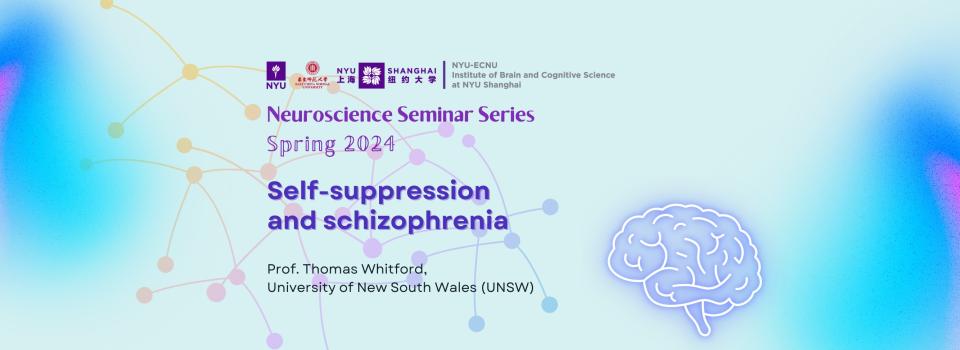
Host: Prof. Xing Tian, NYU Shanghai
Abstract
Self-generated sensations often feel less salient than externally-generated sensations – the fact that it is difficult to tickle oneself is a well-known example. Consistent with this phenomenon, it is now well-established that self-generated stimuli, such as the sound of one’s own voice, normally evoke less activity in the electroencephalogram (EEG) than physically identical stimuli that are externally-produced. There is growing evidence to suggest that people with schizophrenia exhibit abnormally low levels of ‘self-suppression’, which may account for their characteristic tendency to misattribute self-generated actions to external agents, which may underlie symptoms like delusions of control. In this talk I will review the behavioural and electrophysiological evidence for self-suppression deficits to willed actions in people with schizophrenia. I will then discuss how extending the idea from self-generated actions to self-generated thoughts could underlie such psychotic symptoms as auditory-verbal hallucinations and delusions of thought insertion. I will conclude with some experimental data suggesting that people with schizophrenia show self-suppression deficits to mental actions (inner speech), and that these deficits may be linked to the presence of auditory-verbal hallucinations.
Biography
Thomas Whitford is a Professor in the School of Psychology at the University of New South Wales (UNSW), Sydney, Australia. His research focuses on using electroencephalography and neuroimaging to explore the neural basis of schizophrenia. Thomas completed his PhD at the University of Sydney in 2007, before undertaking postdoctoral research positions at Harvard University (2008-2010) and the University of Melbourne (2010-2011). He joined UNSW as a faculty member in 2012. In 2020 he was elected as a Fellow of the Royal Society of New South Wales, Australia.


